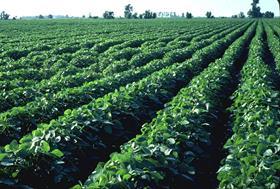
Productive agriculture delivers important benefits to Europe and the world, from increased food security and more efficient land use to climate change mitigation, biodiversity protection and economic and social stability, according to a new academic study.
The new report, titled “The social, economic and environmental value of agricultural productivity in the European Union”, has been published by the Humboldt Forum for Food and Agriculture, an international non-profit think tank based in Berlin.
The study assesses data on the economic, social and environmental effects of productive agriculture – that which uses modern technologies such as agricultural machinery, new seed varieties, organic and/or mineral fertilisers, and plant protection products and solutions – in the EU.
According to the findings, each percentage point increase in agricultural productivity in the EU has a knock on effect, such as feeding more than 10m humans per year, increasing the annual social welfare generated in European agriculture by approximately €500m, and contributing €500 to the annual income of an average EU farmer.
The report said that each percentage point increase would also reduce our net virtual land imports by about 1.2m hectares, save 220m tonnes in CO2 emissions, and would preserve global biodiversity equivalent to fauna and flora of up to 600,000ha of rainforest.
Switching to low input agricultural methods, with average 31 per cent lower yields than productive agriculture in the EU, would come at the cost of these benefits, according to the report’s authors.
“This study – the first scientific analysis of its kind – quantifies the various benefits of productive agriculture in the EU”, said one of the study’s authors, Dr Steffen Noleppa of agripol GbR, an agricultural policy research firm based in Berlin, while Harald von Witzke from Humboldt University Berlin added: “Clearly, when it comes to agriculture, productivity matters.”
Friedhelm Schmider, director general of the European Crop Protection Association, said the study highlighted the fact that agricultural production – including pesticide use – contributes to our life in many ways.
'The benefits pesticides bring to the table are often taken for granted, and the reasons for their use in agriculture are rarely discussed,' Schmider explained. 'Nevertheless, we are hopeful that this new research will serve as base for increasing the understanding of the accomplishments which have already been achieved in agriculture.
'Innovation in crop protection has delivered a lot and for this to continue we need policy and regulatory frameworks that foster innovation and help Europe’s farmers to stay competitive, in order to meet the challenges of tomorrow and to continue to deliver affordable and healthy food available for all, whist protecting environment and consumer health.'



